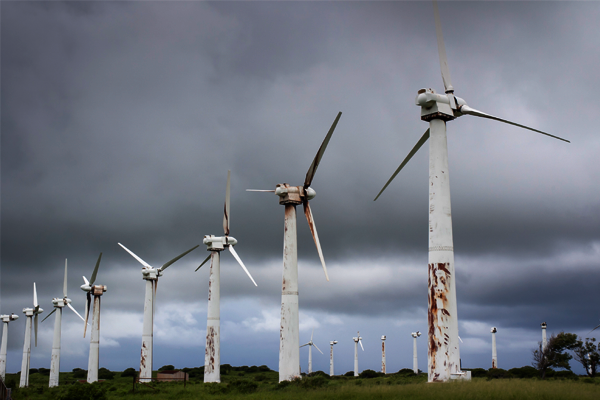Congress is reportedly considering a deal to revive a package of expired tax provisions known as tax extenders. While it contains a number of popular items, the deal would also extend corporate welfare central to President Obama’s climate agenda: the wind Production Tax Credit (PTC). Speaker Ryan should protect American families from the impacts of the President’s plan to make electricity prices skyrocket by rejecting a PTC extension.
The PTC is a wealth transfer from working families to the wind industry. As Republican Study Committee Chair Representative Bill Flores put it, the PTC a “special interest giveaway.” A recent study by my organization, the Institute for Energy Research, found that taxpayers in 30 states and D.C. are net losers on the PTC—they pay more to support wind subsides than wind companies in their states receive in handouts.
These handouts transfer billions of dollars from taxpayers to large corporations. Many of the largest PTC recipients are foreign-owned energy conglomerates that have grown accustomed to handouts. But with subsidies drying up abroad, they’re turning to U.S. taxpayers to keep the spigot open.
The Senate Finance Committee estimated a two-year extension would cost taxpayers more than $10 billion over the next decade, but the deal Congress is considering would be even more costly, extending the PTC for five years. It should come as no surprise that the rumored deal is being referred to by some as a “phase out”—resembling the plan proposed by and lobbied for by GE just last year.
But make no mistake—this is a five-year extension. Should Congress move forward with this deal, it will come as an early Christmas present to large, multinational corporations like GE at the expense of taxpayers everywhere.
PTC Extension is More Than a Handout to Big Wind
Congress’ PTC deal isn’t just a handout to Big Wind. It also gives a helping hand to President Obama.
As world leaders gather in Paris for yet another climate summit, the president is touting new EPA regulations as a “historic step” to address climate change. Those regulations, the so-called “Clean Power Plan,” will cost $292 billion, hike electricity prices by double digits in 40 states, and achieve zero climate benefits.
Obama’s carbon regulation depends on rapid wind-power growth, as our analysts have pointed out. Since wind power is expensive, it needs government support to compete. That’s where the PTC comes in.
The PTC plays a key role in propping up expensive, unreliable wind power. As Warren Buffett has said, “On wind energy, we get a tax credit if we build a lot of wind farms. That’s the only reason to build them. They don’t make sense without the tax credit.”
Congress can’t seem to decide whether it supports the American people or Obama’s climate agenda. On the one hand, the House and Senate passed CRA resolutions striking down the president’s new carbon regulation. On the other, they may revive corporate handouts that Obama is banking on to make his carbon regulations succeed.
Wind power, driven by handouts like the PTC, is Obama’s best hope for salvaging a climate legacy that has been marred by green stimulus failures like Solyndra and failed legislative initiatives like national cap-and-trade, RPS, and carbon taxes.
If the Senate votes to revive and extend the PTC yet again, the House, under Speaker Ryan’s leadership, will have to decide whether to stand on principle, and with the American people, or with industrial wind lobbyists and President Obama.
